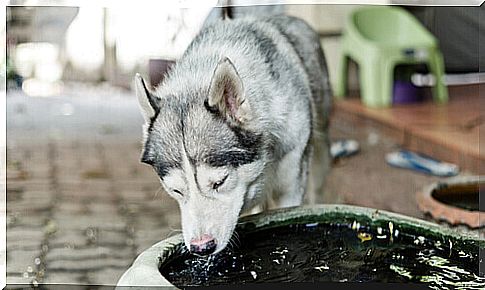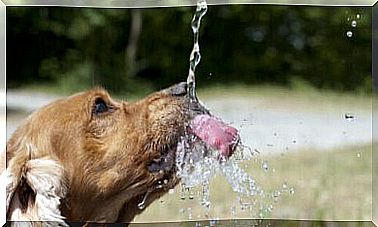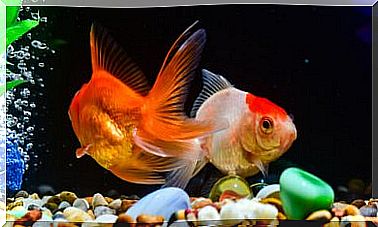Cystitis In Dogs: Causes, Symptoms And Treatment

Few pet owners are aware that cystitis in dogs is a very common condition. It affects specimens of all ages and must be treated quickly and effectively. To help you take action without wasting time, in this article we will provide you with all the information you need to understand the causes, interpret the symptoms and seek the most appropriate treatment.
Information about the disease
Cystitis in dogs is an infection that occurs in the bladder of the animal. In addition to being frequent, it is a very annoying problem. The cause for which it appears is the presence of bacteria which, through the intestine, pass into the urethra until reaching the bladder. Here they cause inflammation which on many occasions is accompanied by intense pain.
According to medical studies in dogs with cystitis, the bacteria that are usually detected are of the type Escherichia coli, although the disease can also occur in the presence of another type of pathogen. Cystitis can be acute or chronic and will need to be treated as soon as possible.

On the other hand, as the urethra of the female is shorter than that of the male, the pathology is more frequent in the females. Therefore it is essential to maintain adequate hygiene as a form of prevention.
Cystitis in dogs: symptoms
Although you know your pet very well, sometimes a change in behavior is viewed as an unimportant or transient problem . But you have to be careful, because it could be a symptom that reveals the presence of a disease or the beginning of it.
As in other health-related issues, even with cystitis it is crucial to detect the problem when it is still in its early stages. Cures and treatments will be more effective, since the infection will be in a less advanced state.
Let’s see together the signs to pay attention to in the case of cystitis:
- Behavior changes : The discomfort caused by the infection will inevitably produce some unusual behavior in your four-legged friend.
- Moaning and crying : if the animal complains when urinating.
- Frequent urination : The bladder stores urine from the kidneys. When the walls are inflamed by cystitis, the internal space is reduced and your dog will have to urinate more frequently and in less quantity. This is one of the most common symptoms. Also pay attention to the possible presence of blood in the pee.
- Difficulty urinating : If you notice that your dog is spinning and cannot urinate, he may be suffering from cystitis. Whether it is the infection itself or the obstruction of the urethra, it is essential to consult a veterinarian so that he can detect the disease.
- Hyperactivity : Discomfort caused by the disease, the need to urinate frequently or the inability to urinate, make the animal more active than usual.
- He drinks more than usual : if this behavior is accompanied by any of the previous ones, it is a warning sign to consider. It may also be that the problem is directly affecting the kidneys.
How to cure cystitis in dogs
It is important to always keep an eye on your four-legged friend, so that you can check for any changes in his habits, as well as the onset of abnormal behaviors. As soon as you notice something strange, don’t hesitate to go to the vet right away .
Diagnosis and how to treat your pet will depend on the criteria and the situation. But most likely, the doctor will perform a urinalysis. This is done to accurately detect the problem and assess the cause and degree of progression of the disease.
It may also be helpful to do an ultrasound, x-ray, etc.
Treatment of cystitis in dogs is usually based on the administration of antibiotics prescribed by the veterinarian. Constantly monitoring the animal will be important for total recovery.

It is ideal for checking that the dog is drinking enough water. This will promote complete healing.
Is it possible to prevent cystitis?
There are always habits that promote disease prevention. In this case, drinking enough water is helpful in avoiding dehydration and the possible appearance of bacteria.
Even a proper hygiene and a healthy diet are very important. In addition, it is necessary to keep the vaccinations up-to-date and to consult your veterinarian regularly.
All of these behaviors are important in preventing, not just the appearance of cystitis, but many other conditions that could endanger your pet’s health and well-being.









